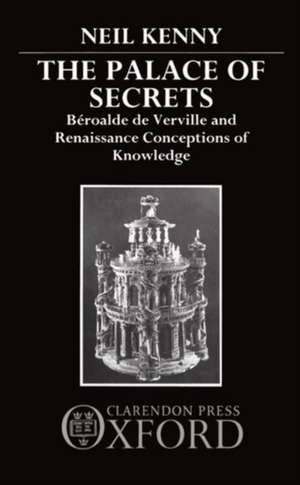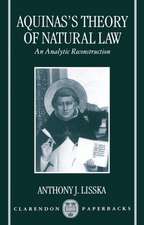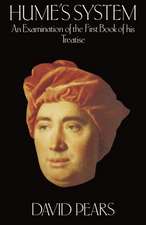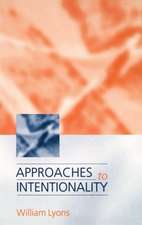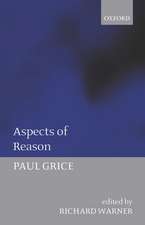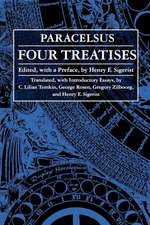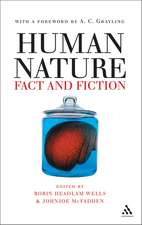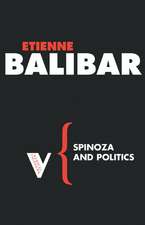The Palace of Secrets: Béroalde de Verville and Renaissance Conceptions of Knowledge
Autor Neil Kennyen Limba Engleză Hardback – 30 mai 1991
Preț: 861.82 lei
Preț vechi: 1308.58 lei
-34% Nou
Puncte Express: 1293
Preț estimativ în valută:
164.91€ • 172.61$ • 137.26£
164.91€ • 172.61$ • 137.26£
Carte tipărită la comandă
Livrare economică 20-26 martie
Preluare comenzi: 021 569.72.76
Specificații
ISBN-13: 9780198158622
ISBN-10: 0198158629
Pagini: 318
Ilustrații: 6 halftones
Dimensiuni: 145 x 222 x 24 mm
Greutate: 0.54 kg
Editura: Clarendon Press
Colecția Clarendon Press
Locul publicării:Oxford, United Kingdom
ISBN-10: 0198158629
Pagini: 318
Ilustrații: 6 halftones
Dimensiuni: 145 x 222 x 24 mm
Greutate: 0.54 kg
Editura: Clarendon Press
Colecția Clarendon Press
Locul publicării:Oxford, United Kingdom
Recenzii
Kenny's study is thorough, precise, lucid and elegant. ... combines a literary with a philosophical approach to 'erolade's texts ... Kenny's study, which makes unobtrusive use of literary theory, from Bakhtin to Derrida, is very much of the 1990s in its concern with subversion and contradiction ... As Kenny demonstrates ... these were the concerns of the 1590s as well. ... persuasive and perceptive study'
Measured and well-balanced treatment of the writer ... The study is well documented with an impressive European-wide range of reference, its conclusions finely nuanced and well supported. Dr. Kenny has been very well served by his publisher too. Nothing has been skimped in the production of the book which has six illustrations, abundant footnotes, three useful appendices, a full bibliography and index. In short, this is a pleasing and valuable contribution to our knowledge of a period of literary and intellectual history perhaps too often overlooked in the past.
Kenny's erudition is impressive, and he offers many rich insights into the intellectual milieu of the late Renaissance, especially in France. His stress on the interrelatedness of philosophy and fiction deserves close attention.
Measured and well-balanced treatment of the writer ... The study is well documented with an impressive European-wide range of reference, its conclusions finely nuanced and well supported. Dr. Kenny has been very well served by his publisher too. Nothing has been skimped in the production of the book which has six illustrations, abundant footnotes, three useful appendices, a full bibliography and index. In short, this is a pleasing and valuable contribution to our knowledge of a period of literary and intellectual history perhaps too often overlooked in the past.
Kenny's erudition is impressive, and he offers many rich insights into the intellectual milieu of the late Renaissance, especially in France. His stress on the interrelatedness of philosophy and fiction deserves close attention.
